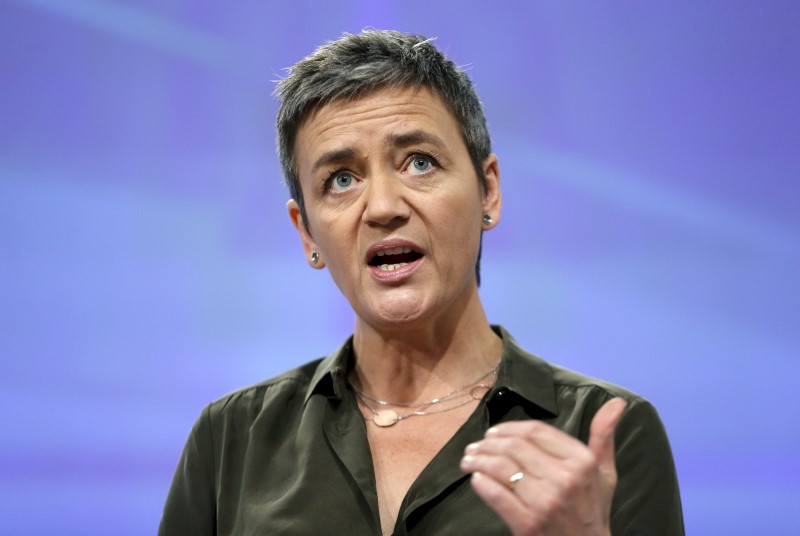By Barbara Lewis and Foo Yun Chee
BRUSSELS/STRASBOURG (Reuters) - Mechanisms that allow government to pay utilities to maintain back-up generation can be needed to prevent blackouts, Europe's state aid chief said on Wednesday, but said she would act against any nations who used the schemes illegally.
European Competition Commissioner Margrethe Vestager ordered a year-long inquiry into mechanisms in 11 EU countries to see whether such subsidies, known as capacity mechanisms, break the bloc's state aid rules
"European consumers and companies should not have to face black-outs and capacity mechanisms can help to reduce this risk," Vestager said. "At the same time, consumers should not over-pay for electricity and competition should not be undermined"
She told a news conference in Brussels she would pursue governments if she found evidence of illegal subsidies, but no decision had been taken yet. The 11 countries included in the inquiry are Belgium, Croatia, Denmark, France, Germany, Ireland, Italy, Poland, Portugal, Spain and Sweden.
Britain also uses capacity mechanisms, which were approved before the inquiry began, to fund electricity generation that is not necessarily cost-effective but is needed to guarantee supply. Utilities including E.ON (DE:EONGn), EDF (PA:EDF), RWE (DE:RWEG) and Centrica (L:CNA) are among those funded by the British scheme.
Environment campaigners and Green members of the European Parliament condemn capacity mechanisms as fossil fuel subsidies that work against investment in renewable energy and add to consumer costs.
They say better distribution of surplus supplies across national borders would be a cheaper solution and better in line with the Commission's aim for a single energy market.
Luxembourg Green politician Claude Turmes said the interim report was "a biased exercise trying to justify by all means some additional subsidies to stranded fossil fuel and nuclear capacity". Giles Dickson, CEO of Wind Europe, which represents the European wind industry, said capacity mechanisms must only be a last resort.
"They should not be used to prop up Europe's most inefficient and polluting power generation assets, particularly when the EU's energy system is bloated by overcapacity," he said. The Commission will seek feedback from EU countries and other interested parties before publishing a final report later this year.

It will also publish legislative proposals later this year on how to improve the design of the EU electricity market, which could prevent any need for capacity mechanisms.